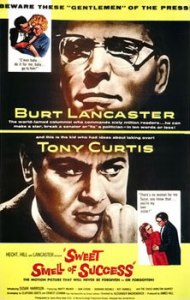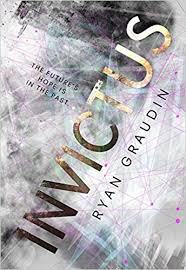 Legacy of Ashes: The History of the CIA by Tim Weiner
Legacy of Ashes: The History of the CIA by Tim Weiner
My rating: 4 of 5 stars
Tim Weiner has put together a well researched history of the CIA that will be discouraging for those that think “the Agency” has a long and successful record of espionage and covert operations. Weiner tells the story of failure after failure, disaster after disaster. The book is really well researched, highlighting the very beginnings of the agency, tracing its growth, and bringing us some of the major figures of the CIA. Wild Bill Donovan, Allen Dulles, James Jesus Angleton, Richard Helms, Bob Gates, George H.W. Bush, John McCone, Bill Casey, and a host of characters that developed the Agency and ran it from its inception.
The book is very negative about the CIA, and many reviewers have cited that negativity as a criticism. No question on the negativity, but the record speaks for itself. Weiner reviews many failures, and the successes he highlights have the Agency exhibiting a moral decadence, and a willingness to act as a foreign policy rogue elephant, defying Presidents and Congress. He also shows us where the Agency tried very hard to please Presidents, even when Presidential demands were illegal, immoral, not achievable, and contrary to the long term interests of the country.
Despite the length of the book there was not a lot of time to look at some of the notable operations in great depth. Angelton’s lifelong search for a CIA mole as head of counter-intelligence, his disastrous handling of the Russian defectors Anatoliy Golitsyn and Yuri Nosenko, the tapping of the Russian below ground communication lines in Berlin in 1954, the operation that helped depose the Iranian government (installing the Shah and creating enmity that still exists today,) and the multitude of CIA Cuban operations, including the Bay of Pigs and the efforts to kill Castro. There is enough material to have supplied multiple volumes if the author had wanted to go down that road.
There is plenty to take out of the book, and not many who come off looking good. The Kennedy brothers are shown in a very negative light, with the author putting forward the strong insinuation that JFK was assassinated as a result of the attempts on Castro’s life by U.S. intelligence. He offers no conclusive proof, but makes a pretty strong argument. A Richard Helms observation from the book:
“Helms thought political assassination in peacetime was a moral aberration. But there were practical considerations as well. “If you become involved in the business of eliminating foreign leaders, and it is considered by governments more frequently than one likes to admit, there is always the question of who comes next,” he observed. “If you kill someone else’s leaders, why shouldn’t they kill yours?”
Weiner, Tim. Legacy of Ashes: The History of the CIA (Kindle Locations 3316-3319). Knopf Doubleday Publishing Group. Kindle Edition.
One person who manages to look good through this book is Kennedy CIA Director John McCone, who is shown as fairly prescient on a number of critical policy matters, including Vietnam and the potential for Soviet offensive weapons being placed into Cuba. McCone took over the agency after JFK cashiered Alan Dulles over the Bay of Pigs failure. The book shows him as understanding, and articulating, the real issues facing the U.S. in Vietnam at a very early stage, and warning JFK on the potential for Soviet offensive weaponry being placed into Cuba before they were detected.
“The director saw a greater danger ahead. He predicted that the Soviet Union was going to give Castro nuclear weapons—medium-range ballistic missiles capable of striking the United States. He had been worrying about that possibility for more than four months. He had no intelligence, nothing to go on save gut instinct. McCone was the only one who saw the threat clearly. “If I were Khrushchev,” he said, “I’d put offensive missiles in Cuba. Then I’d bang my shoe on the desk and say to the United States, ‘How do you like looking down the end of a gun barrel for a change? Now, let’s talk about Berlin and any other subject that I choose.’” No one seems to have believed him. “The experts unanimously and adamantly agreed that this was beyond the realm of possibility,” notes an agency history of McCone’s years. ‘He stood absolutely alone.’”
Weiner, Tim. Legacy of Ashes: The History of the CIA (Kindle Locations 3372-3387). Knopf Doubleday Publishing Group. Kindle Edition.
On Vietnam McCone gave good counsel, but was ignored, eventually quitting in 1965.
“On April 2, 1965, John McCone quit for the last time, effective as soon as Lyndon Johnson selected a successor. He delivered a fateful prediction for the president: “With the passage of each day and each week, we can expect increasing pressure to stop the bombing,” he said. “This will come from various elements of the American public, from the press, the United Nations and world opinion. Therefore time will run against us in this operation and I think the North Vietnamese are counting on this.” One of his best analysts, Harold Ford, told him: “We are becoming progressively divorced from reality in Vietnam” and “proceeding with far more courage than wisdom.” McCone now understood that. He told McNamara that the nation was about to “drift into a combat situation where victory would be dubious.” His final warning to the President was blunt as it could be: “We will find ourselves mired down in combat in the jungle in a military effort that we cannot win, and from which we will have extreme difficulty extracting ourselves.”
Weiner, Tim. Legacy of Ashes: The History of the CIA (Kindle Locations 4371-4379). Knopf Doubleday Publishing Group. Kindle Edition.
Any book on the CIA must deal with the politicization of intelligence and how intel has been “shaped” to meet the existing policy preferences of Presidents, and others. This did not start with the ridiculous efforts of the CIA on Iraq under George W. Bush and George Tenet, but had begun many years before. Honest CIA estimates on Vietnam were “scrubbed” by the military, and CIA analysts received the message, loud and clear. The first example below shows Maxwell Taylor scrubbing a CIA report on Vietnam that had some honest analysis in it. The second example shows George H.W. Bush, as CIA Director, letting an “alternate” analysis on Soviet capabilities get out of hand, and drive policy and ideas in Washington. That alternate analysis has been proven, over time, to have been false.
“Four days later, Lyndon Johnson lashed out. Dumb bombs, cluster bombs, and napalm bombs fell on Vietnam. The White House sent an urgent message to Saigon seeking the CIA’s best estimate of the situation. George W. Allen, the most experienced Vietnam intelligence analyst at the Saigon station, said the enemy would not be deterred by bombs. It was growing stronger. Its will was unbroken. But Ambassador Maxwell Taylor went over the report line by line, methodically deleting each pessimistic paragraph before sending it on to the president. The CIA’s men in Saigon took note that bad news was not welcome. The corruption of intelligence at the hands of political generals, civilian commanders, and the agency itself continued. There would not be a truly influential report from the CIA to the president on the subject of the war for three more years.”
Weiner, Tim. Legacy of Ashes: The History of the CIA (Kindle Locations 4350-4356). Knopf Doubleday Publishing Group. Kindle Edition.
“By the end of 1976, Bush was in bad odor with some of his former fans at the agency. He had made a baldly political decision to let a team of neoconservative ideologues—“howling right-wingers,” Dick Lehman called them—rewrite the CIA’s estimates of Soviet military forces. William J. Casey, the most vociferous member of the President’s Foreign Intelligence Advisory Board, had been talking with some of his friends and associates in the intelligence community. They were convinced that the CIA was dangerously underestimating Soviet nuclear strength. Casey and his fellow members of the advisory board pressed President Ford to let an outside group write their own Soviet estimate. The team, whose members were deeply disenchanted with détente and handpicked by the Republican right, included General Daniel O. Graham, America’s leading advocate of missile defense, and Paul Wolfowitz, a disillusioned arms-control negotiator and a future deputy secretary of defense. In May 1976, Bush approved “Team B” with a cheery scribble: “Let her fly!! O.K. G.B.” The debate was highly technical, but it boiled down to a single question: what is Moscow up to? Team B portrayed a Soviet Union in the midst of a tremendous military buildup—when in fact it was cutting military spending. They dramatically overstated the accuracy of Soviet intercontinental ballistic missiles. They doubled the number of Backfire bombers the Soviet Union was building. They repeatedly warned of dangers that never materialized, threats that did not exist, technologies that were never created—and, most terrifying of all, the specter of a secret Soviet strategy to fight and win a nuclear war. Then, in December 1976, they selectively shared their findings with sympathetic reporters and opinion columnists. “The B Team was out of control,” Lehman said, “and they were leaking all over the place.” The uproar Team B created went on for years, fueled a huge increase in Pentagon weapons spending, and led directly to the rise of Ronald Reagan to the top of the list of front-runners for the 1980 Republican nomination. After the cold war was over, the agency put Team B’s findings to the test. Every one of them was wrong. It was the bomber gap and the missile gap all over again. “I feel like I have been had,” Bush told Ford, Kissinger, and Rumsfeld at the last National Security Council meeting of the outgoing administration. Intelligence analysis had become corrupted—another tool wielded for political advantage—and it would never recover its integrity. The CIA’s estimates had been blatantly politicized since 1969, when President Nixon forced the agency to change its views on the Soviets’ abilities to launch a nuclear first strike. “I look upon that as almost a turning point from which everything went down,” Abbot Smith, who ran the agency’s Office of National Estimates under Nixon, said in a CIA oral history interview.
The Nixon administration was really the first one in which intelligence was just another form of politics. And that was bound to be disastrous, and I think it was disastrous.” John Huizenga, who succeeded Smith in 1971, put it even more bluntly to the CIA’s historians, and his thoughts rang true in decades to come, into the twenty-first century: In retrospect, you see, I really do not believe that an intelligence organization in this government is able to deliver an honest analytical product without facing the risk of political contention. By and large, I think the tendency to treat intelligence politically increased over this whole period. And it’s mainly over issues like Southeast Asia and the growth of Soviet strategic forces that were extremely divisive politically. I think it’s probably naïve in retrospect to have believed what most of us believed at one time…that you could deliver an honest analytical product and have it taken at face value…. I think that intelligence has had relatively little impact on the policies that we’ve made over the years. Relatively none. In certain particular circumstances, perhaps insights and facts that were provided had an effect on what we did. But only in a very narrow range of circumstances. By and large, the intelligence effort did not alter the premises with which political leadership came to office. They brought their baggage and they more or less carried it along. Ideally, what had been supposed was that…serious intelligence analysis could…assist the policy side to reexamine premises, render policymaking more sophisticated, closer to the reality of the world. Those were the large ambitions which I think were never realized. “
Weiner, Tim. Legacy of Ashes: The History of the CIA (Kindle Locations 6232-6238). Knopf Doubleday Publishing Group. Kindle Edition.
Weiner is especially down on the CIA “covert operations” arm, assigning to it much of the blame for the overall failures of the Agency. Can an organization like the CIA be successful in a democracy? Do American politicians, going back to JFK, only hear what they want to hear, shutting out everything that does not comport with the preconceived ideology and biases brought into office? This book covers a lot of ground, and is sourced very well. Despite the overall negative tenor towards the Agency this book is well worth a read if the real history of American intelligence gathering, and covert operations, is something you are interested in.
View all my reviews
Share this:





